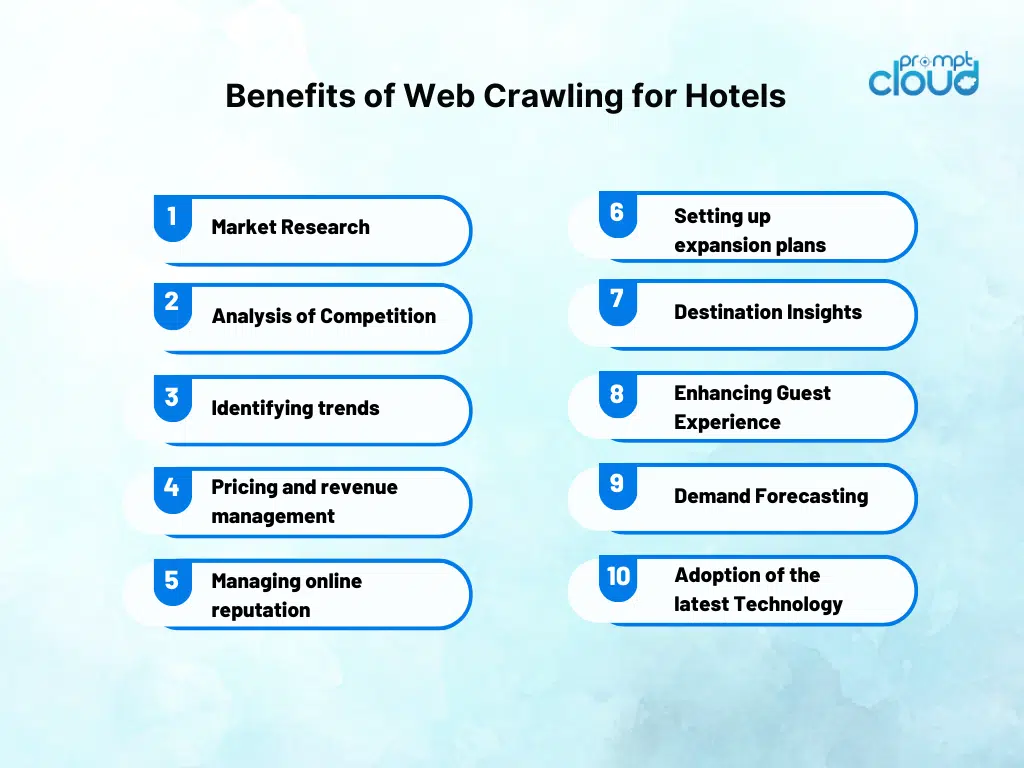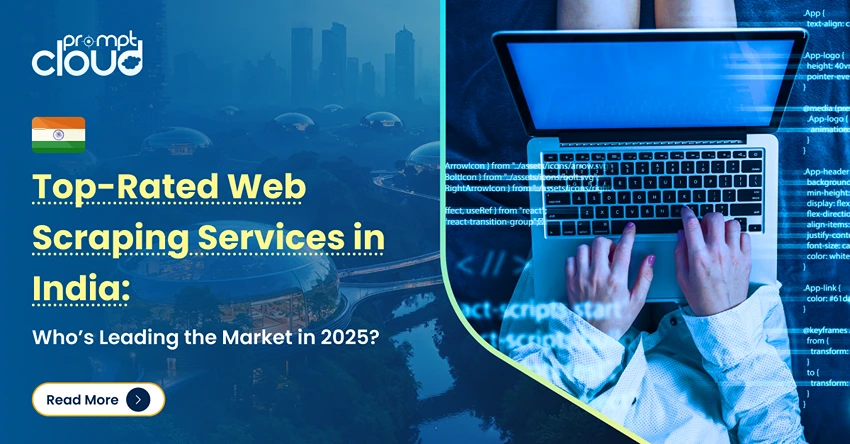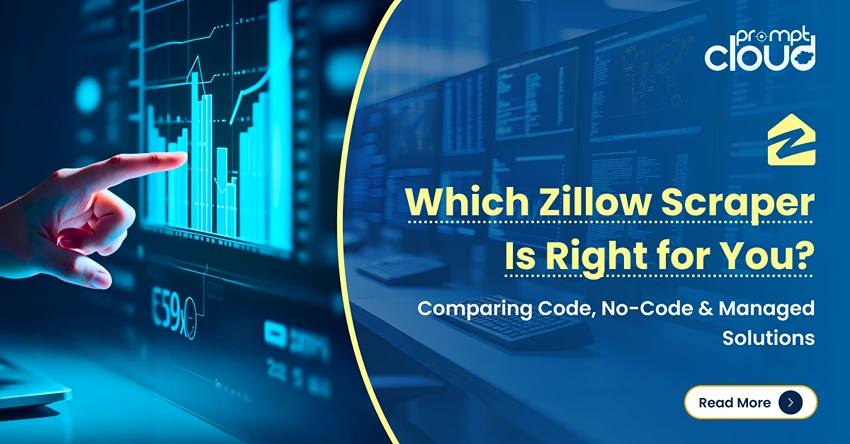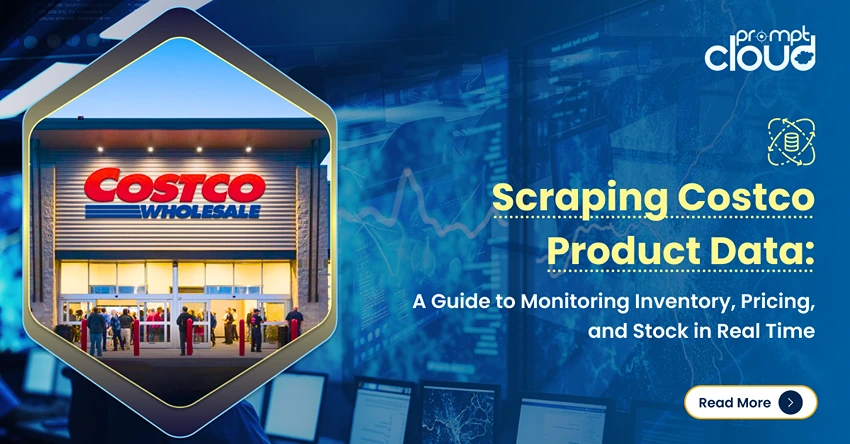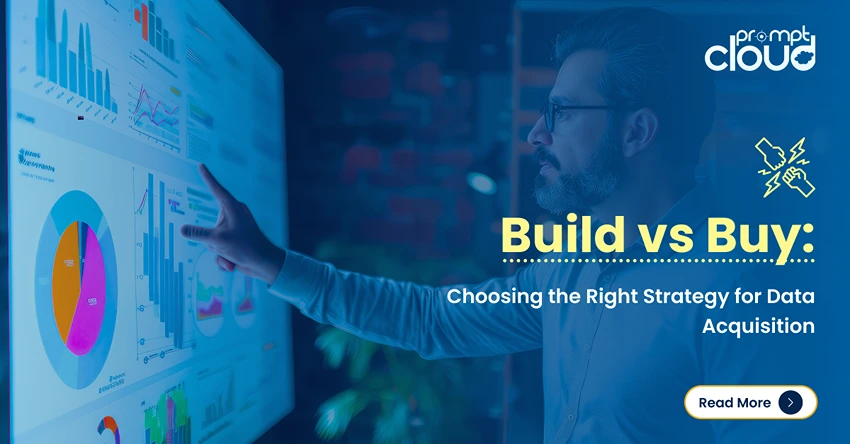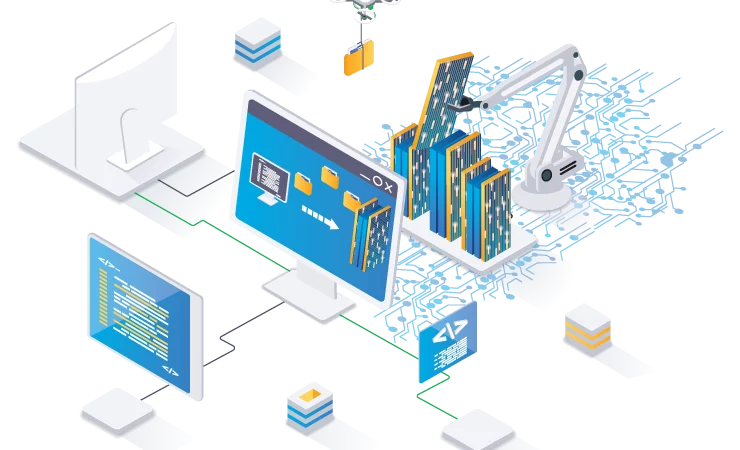
Abhisek Roy
- June 14, 2023
- Blog
The Hospitality Industry was hit the hardest during the pandemic. While many closed shops, others had to let go of most of their employees. Cruises sold ships, restaurants went out of business and hotels saw the lowest bookings in decades. As per this report by NASSCOM, the US itself saw hotel bookings plummet by almost 60%. However, things have changed now and in the post-pandemic era, people are traveling like never before.
This has created an opportunity for hotel owners to plan and recover some of the losses. The growing tourist crowd in popular and offbeat locations also provides more options to open new hotels and expand businesses. Hotel Data can be essential for a business to thrive in such a dynamic and competitive market.
The data can be used for various purposes like expansion, deciding on seasonal or ‘last-minute’ room rates, and even creating all-inclusive family or couple packages that can be sold to a wider audience. Web crawling is one of the best data sources for those in the industry wanting to place data-backed bets. Some of the most common benefits of using web crawling for hotels are:
Market Research
Even before you open a hotel, you need to lay the groundwork. This may involve things like
- Finding the average income of people in that area.
- Figuring out the average tourist footfall during different seasons.
- Whether the area is affected by any natural calamities like flooding or storms.
- The number of hotels existing in the place at different price bands.
- Average occupancy in off-season.
Analysis of Competition
Identifying and analyzing the competition is critical unless you want to become irrelevant. For this, you need hard data instead of gut feelings. For example, if you are a 5-star hotel owner wanting to open a new hotel in a city, you may instinctively want to open your hotel in a place a little away from the other 5-star hotels. However, data may point you to a finding that almost all the 5-star hotels of the city are in the same area due to their popularity, central location, and posh neighborhood. Extracting findings like these is only possible through competitor data analysis.
Identifying trends
Companies these days are quick to jump on trends to reach the masses and go viral. Hotel owners can do the same by increasing their social media presence and portraying the latest activities, additions, and happenings. Scraping data from the web can provide a host of ideas that can be worked upon to generate content that new-age travelers and tourists would relate to.
Pricing and revenue management
Getting your pricing right directly converts to higher occupancy rates– which is why those who use data-backed pricing strategies powered by Machine Learning algorithms are far ahead in the game.
Managing online reputation
A single tweet or viral video can end up causing you thousands of dollars worth of lost business if you are a hotel owner. Therefore, it’s in your best interest that you crawl reviews and comments on the internet where your hotel’s name is mentioned. Once you have the data, you will need to perform sentiment analysis, find the ones most critical of your business, and address issues that can be resolved.
Setting up expansion plans
Expansion plans are the best way for a business to grow once the existing hotels are profitable. However unplanned or quick expansion is a recipe for disaster in almost every industry. This is why scraping hotel data is a must before deciding on things like–
- Where to open a new hotel?
- What type of hotel would work for the particular location?
- How big should the hotel be and what should be its capacity?
- What amenities or add-on features should be provided?
Destination Insights
The destination plays a big role in decisions like how big your hotel should be, what amenities it should offer, the theme of the hotel, the food options you want to keep, and more. You will need to thoroughly research the location of your hotel instead of making a decision on gut feelings or inaccurate data. The hotel that would suit a religious site would be very different from one in the middle of a forest.
Enhancing Guest Experience
Tourists do not want to spend all day in a hotel. Instead, they want to experience the local food and culture, visit the popular highlights, go to offbeat locations, participate in activities, and more. Depending on where your hotel is, you may want to provide add-on features to enhance the guest experience. These can range from a private beach for beachside hotels to a curated tour plan for hotels on the hillside. You can scrape hotel data to find out what other hotels are including along with the lodging facility to offer guests with a more wholesome experience. Such offerings backed by data also come with a wider margin as compared to just the room rent. You may also be able to use data to create curated packages of x days and y nights which include the top tourist attractions and activities of a place. But to create them in a way that they are attractive and at a reasonable price point– you will again need more data!
Demand Forecasting
Figuring out demand is the single most critical data point that can make or break your hotel. Scraping historical hotel data along with real-time data related to how many vacancies are there in other hotels can help you figure out your short-term and long-term demands. In case your hotel has been around for a while, you may want to add your occupancy data to the mix. Based on the demand forecasts, you could give off some rooms at a cheaper price to drive up the occupancy rates.
Adoption of the latest Technology
One major opportunity that many hotels leave on the table is the adoption of the latest technology. While this may not always be possible, being one of the early adopters always gives you an edge. For instance, imagine hotels that you still can’t book online. As a hotel owner, you will have to scrape hotel data and find out the latest tech that can boost your business and reduce costs.
Crawling the web and finding relevant data is too complicated for a hotel business to take up on its own. You should focus on the real business and get a DaaS provider like PromptCloud to do the heavy lifting we will get you the data based on the use case and problem statement that you want to solve. Also, like a true cloud-based solution, we will also bill you based on your usage only. This way you could tackle new problems and discover new opportunities every month and remain ahead of your competition with data in your hand.
Sharing is caring!




